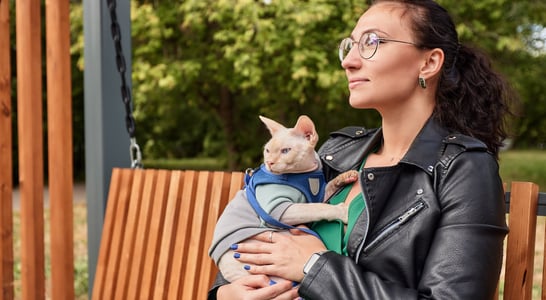
Visit The Zoo Day
Fascinating creatures from around the world, each with its unique charm and quirks, transform a day into a captivating adventure.
If animals are your passion then Visit the Zoo Day gives you a great opportunity to really get close to some of the most intriguing and engaging species on the planet.
No matter where you live, your usually not far from a zoo, so why not go for a visit and find out more?
In most of the better zoos around the globe, the enclosures the animals are kept in are relatively roomy and attempt to mirror an animal’s natural environment as closely as possible. Some zoos house indigenous species as well as or rather than those from further away.
All in all, zoos are fascinating (and often smelly) places where we can get a lot closer to nature than we would ever have the chance to otherwise, and that’s definitely worth trying at least once or twice in life.
How to Celebrate Visit the Zoo Day
Visit the Zoo
The best way to celebrate this day is to visit a zoo yourself, and perhaps take a friend or your children with you.
You have likely been to the zoo before, however, so you are aware of how people just move from one animal to the next, never paying any of them nearly as much attention as they should.
Study Up on Zoo Animals
This time, try to make your trip to the zoo different. Make a point of reading up on several specific animals beforehand in order to know as much a bout them as possible before you see them live.
Then, spend more than the few moments most people spend gazing idly at the creature before moving right onto the next one.
Study it, observe it, try to get the best look possible, take note of the animal’s behaviour, which you can later discuss with your partner or family.
This Visit the Zoo Day, remember why zoos were created in the first place, and take advantage of the full learning potential they offer.
Learn About Zoo Programs
Zoos are at the forefront of much of the research which goes on into animal behaviour and how best to protect vulnerable animals from extinction.
Many zoos have breeding programmes running, where they work with other facilities around the world to increase the numbers of endangered populations.
History of Visit The Zoo Day
The idea of having exotic animals confined to a certain area for other people to view or observe is not new at all.
The earliest such enclosure , called a “menagerie” discovered by excavators in Egypt and is believed to date back to about 3500 B.C. King Solomon of Israel was a known ancient animal collector, as were King Nebuchadnezzar of Babylonia and Alexander the Great.
Wild animals were also collected to be used in the arenas during the Roman Games, though most of those died violent deaths after being pitted against each other for the amusement of the crowd.
Later, British kings kept wild animals in the Tower of London, with the price of viewing them being a small dog or cat that could be used to feed them.
The first actual zoo, created not to stroke the ego of a monarch, but rather to educate and entertain, was opened in London in 1828.
Visit the Zoo Day was likely begun as a tradition by those who are excited to get out of the house and do something fun with the family just after Christmas, while the kids are still out of school!
Visit The Zoo Day FAQs
What was the first public zoo in the world?
The Vienna Zoo, or Tiergarten Schönbrunn, opened in 1752. It remains one of the oldest operating zoos today.
Why do some zoos have “enrichment programs” for animals?
Enrichment programs include puzzles, sensory experiences, and toys to simulate natural behaviors and reduce stress. For example, polar bears might interact with floating ice blocks to mimic hunting for prey.
What are the most unique zoo animal ambassadors?
Some zoos use surprising animals as ambassadors. San Diego Zoo features sloths, porcupines, and even Madagascar hissing cockroaches to teach conservation.
How do zoos in different climates adapt to housing animals?
Zoos in snowy regions, like the Detroit Zoo, create climate-controlled enclosures for tropical animals like penguins and flamingos.
What is a “zoo swap”?
A zoo swap is an exchange of animals between zoos to support breeding programs or improve care, ensuring genetic diversity among species.
What’s the most popular zoo animal worldwide?
Elephants rank among the most visited and beloved zoo animals globally due to their intelligence and social behaviors.
Are there underwater zoos?
Yes! Dubai Mall houses an underwater zoo with a walk-through tunnel that offers breathtaking views of aquatic creatures like sharks and rays.
What role do zoos play during natural disasters?
Zoos often rescue displaced wildlife. For example, after hurricanes, zoos in the U.S. have cared for injured animals until their habitats recover.
Which zoo animal is considered the oddest survivor of evolution?
The platypus, found in Australian zoos, is an egg-laying mammal with a duck bill, making it a biological anomaly.
How do zoos help extinct-in-the-wild species?
Some species, like the Hawaiian crow (ʻalalā), exist only in zoos. Breeding programs aim to reintroduce them to their natural habitats.
Also on ...
View all holidaysNational Leftovers Day
Repurposing remnants into delightful dishes not only reduces waste but transforms every meal into an environmental stewardship.
National Fruitcake Day
Indulge in variations of a classic cake from all over the world or compete to see who can fling this fruit-packed favorite the furthest.
Make Cut-Out Snowflakes Day
Sitting down with paper and scissors, crafting delicate winter wonders to decorate your space and bring a touch of seasonal charm.
We think you may also like...
National Learn About Butterflies Day
These delicate, winged creatures, with their vibrant colors and graceful flight, bring a touch of enchantment to the natural world.








